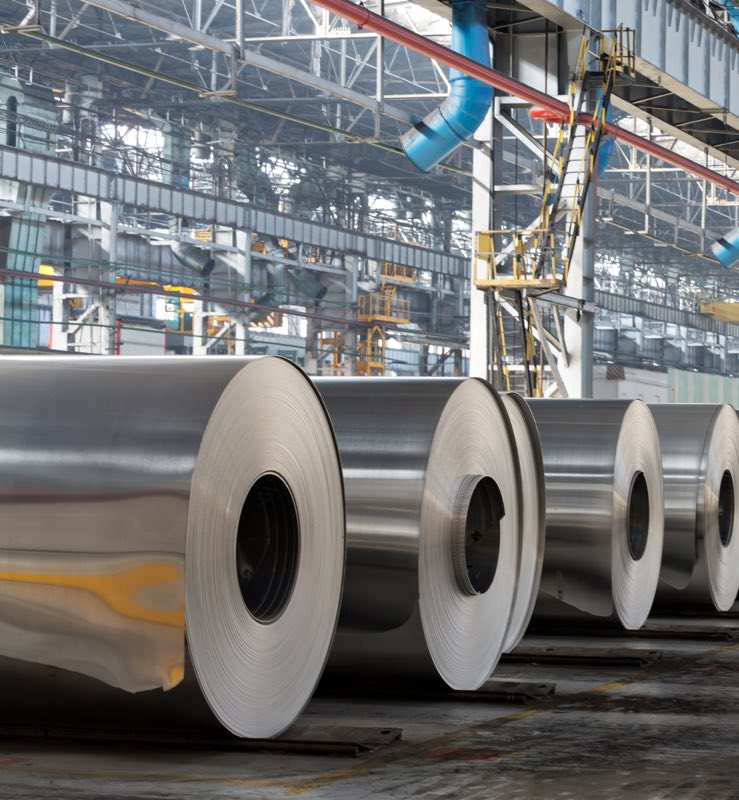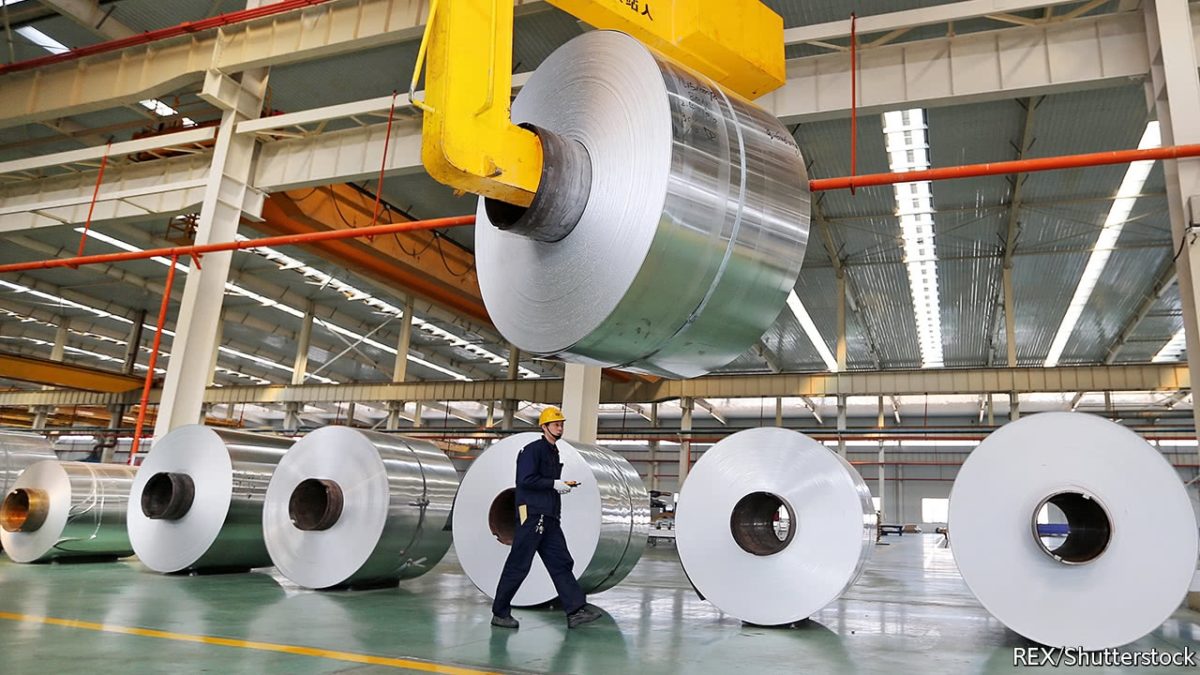ALUMINIUM smelting is sweaty work. Inside the Hawesville plant of Century, an American aluminium producer, it can get so hot that the workers lie outside in the blazing summer sun to cool off. Dennis Harbath, the plant manager, oversees operations. He is worried about the workers. “They have mental fatigue,” he says.
The source of the stress is a number scrawled on a wall in white chalk. That is the dollar price of a tonne of aluminium, set on the London Metal Exchange (LME). The workers keep track of it on their smartphones. Their wives ask about it, too. “It’s hard to stay on the LME rollercoaster when trying to support a family,” says one.
A few years ago, they weren’t particularly aware of the price, says Andy Meserve, the local union president. That changed after 2015, when the price plunged to below $1,500 per tonne, prompting Century to shut down 60% of the plant’s capacity and lay off hundreds of workers. The whole industry was affected. Of America’s five remaining aluminium smelters, only two are running at full capacity. There were 14 in 2011.
Dips and dives are always a feature of commodity markets. A fall in American primary production could be part of a long-term trend towards recycled aluminium. Coal powers aluminium production; workers complain of being strangled by environmental regulation. But Mr Harbath thinks something fishy is going on. Why, he asks, did his plant have to curtail capacity when its energy costs are lower than in China?
The Trump administration is suspicious, too. On April 26th it triggered an investigation into the aluminium industry to defend it against “unfair trade practices and other abuses”. A public hearing on June 22nd will give the industry the chance to air its grievances. (A similar investigation into steel is looming.)
There is some substance to the worries. The Chinese government doles out cheap loans to its industry, encouraging overcapacity. Its output has soared in recent years. Since China joined the World Trade Organisation (WTO) in 2001, its aluminium production has risen from 14% of the global total to 54% in 2016.
Its size gives it huge influence over the global price, which fell in 2015 when Chinese demand did not keep pace with its gargantuan supply. Exporting overcapacity makes for better domestic politics than cutting it, given the potential for job losses. Without production curbs, analysts at Bank of America Merrill Lynch predict the global aluminium market could be oversupplied by 8% by 2020.
The Trump administration is trying to seem tough. Its official investigation invokes Section 232 of the Trade Expansion Act of 1962, which allows the president to impose trade restrictions if he suspects imports are threatening national security. When workers at the Hawesville plant saw the news of Mr Trump’s investigation, the plant hummed with excitement. Perhaps the action would restore those lost jobs.
To them, the link between aluminium and national security seemed natural. Wilbur Ross, Mr Trump’s commerce secretary, mentioned that there was only one American smelter left that makes high-purity metal of the sort that the armed forces need. That one plant is in Hawesville; Messrs Harbath and Meserve both brim with pride when they describe their high-purity aluminium. A sliver of different metal the size of a child’s finger can throw off the blend of an aluminium pod with the capacity of a small swimming pool. “It’s as close as you can get to marrying art and science,” boasts Mr Harbath.
They worry that foreign competition is crushing the life out of American supply. Closed smelters take more than a year to restart, and few ever do. Of the workers laid off at the Hawesville plant in October 2015, 200 had stayed on a recall list, poised to come back if the plant returned to full capacity. Now there are only 112 on the list; 88 have drifted into retirement or other careers. Once there are no more American smelters left, the workers warn that foreigners will charge whatever they want.




